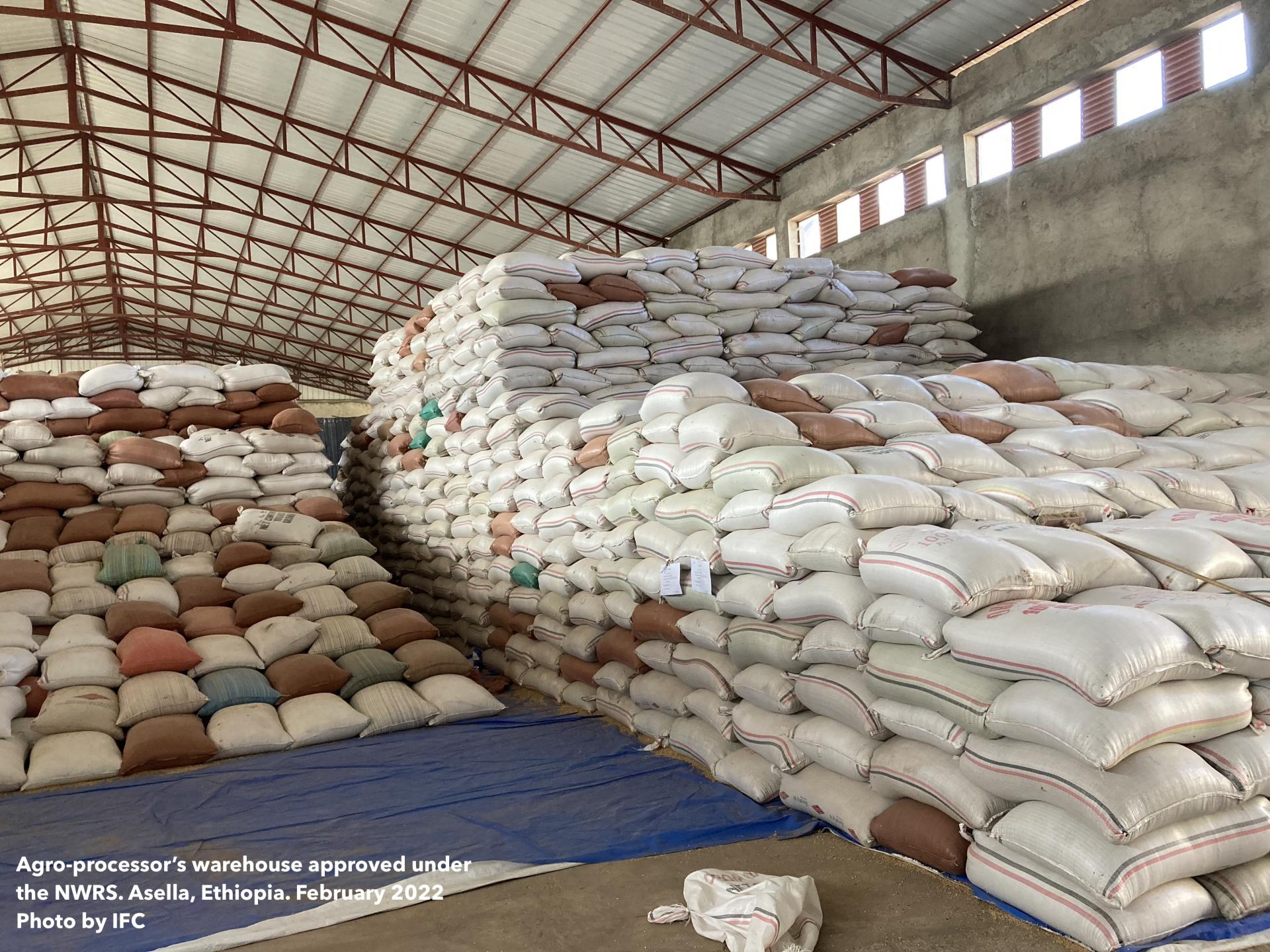FIAS is supporting IFC’s goal of increasing the growth of the agriculture sector and the economic development of Ethiopia and Uganda through the Warehouse Receipt projects. The aim is to address the bottlenecks in the agriculture value chain by developing warehousing operations and provide high-quality storage infrastructure, collateral management services and investment opportunities.
In Ethiopia, the project is building access to storage and finance to farmers, cooperatives, and processors by setting up a national warehouse receipt system (NWRS). The project aims to support the scalability and sustainability of the NWRS by strengthening the capacity of the regulator. The digital platform supports electronic warehouse receipts to enhance the legal, regulatory, and institutional framework thus improving agribusiness in Ethiopia. The team has built strong partnerships and a robust enabling environment to support NWRS and collateral management solutions. In its first full year of implementation the project made major breakthroughs by facilitating diversification of the number of licensed warehouse operators from one to three. This has created a critical mass of competition that will drive extended geographic, commodity, and user coverage, and improved pricing efficiency for storage services.
The project involves engagement with depositors, including women producers and SMEs, as well as officials. The project seeks to improve the agri-finance, lending capacity, operational performance, and administration process of FIs participating in NWRS.
Similarly, Uganda’s warehouse receipt system is plagued with several implementation challenges, such as underdeveloped warehouse and collateral management models, limited availability and affordability of warehouse insurance, absence of quality linked pricing and liquidation mechanisms, infrastructure deficiencies, and inadequate stakeholder engagement and coordination. By completion, the project aims to strengthen the enabling environment and license at least two warehouse operators. The team plans to facilitate warehouse receipt financing arrangements by convening partnerships involving actors with high levels of readiness, including financial institutions, farmer organizations, grain traders, and collateral managers. A key part of the project involves enhancing financial literacy, business management skills, and readiness for producer organizations across the agribusiness sector. The project will seek to identify opportunities for financial institutions to scale up lending, supported by IFC credit lines.
So far, the enabling environment is being strengthened through four project interventions: (i) improving the use of the digital platform eWRS, by developing a manual and workflows to support user training; (ii) strengthening the Uganda Warehouse Receipt Authority’s (UWRSA) Market Information regime to ensure effective real-time valuation of collateral by financial institutions, and market-level pricing references for value chain actors; (iii) providing manuals to support an improved inspection regime by UWRSA of the licensed Warehouses; and (iv) supporting UWRSA to build consensus between warehouse owners, banks, and UWRSA itself on commercially sustainable, operationally robust models under the WRS. In addition to licensing three warehouses for the pilot, the project supported UWRSA in developing frameworks that enable commercially sustainable warehouse and collateral management services. Several players suggested by IFC have now offered to provide services, and negotiations among the parties are being facilitated ahead of the next season.



